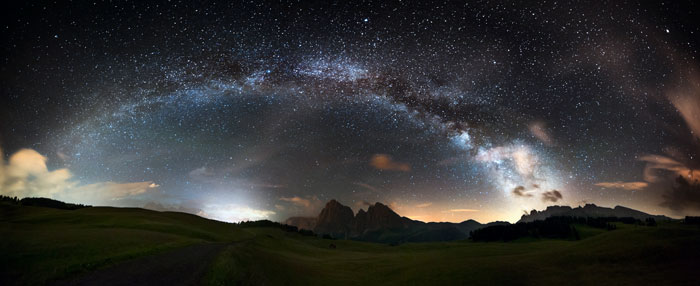By Cheryl Ann Bishop
It’s Global Astronomy Month – the world's largest celebration of astronomy! From across the globe people are coming together to celebrate Astronomers Without Borders' motto “One People, One Sky.”
Once again the International Dark-Sky Association and Astronomers Without Boarders are teaming up to bring you the Dark Skies Awareness blog. Throughout the month, we’ll be talking light pollution, the importance of dark skies and sharing ideas on how YOU can make a difference. Here’s a quick overview of the issues…

What is Light Pollution?
Most of us are familiar with air, water and land pollution, but many don’t know that light can also be a pollutant. The inappropriate or excessive use of artificial light – known as light pollution – has very real consequences for all life on the planet.
Light Pollution Devastates Wildlife
Plants and animals depend on Earth’s daily cycle of light and dark rhythm to govern life-sustaining behaviors such as reproduction, nourishment, sleep and protection from predators. Scientific evidence suggests that artificial light at night has negative and deadly effects on many creatures including amphibians, birds, mammals, insects and plants.
Light Pollution May Harm Your Health
Humans also evolved to the rhythms of the natural light-dark cycle of day and night. The spread of artificial lighting means most of us no longer experience truly dark nights. Research shows that artificial light at night may negatively affect human health, increasing risks for obesity, depression, sleep disorders, diabetes, breast cancer and more.
Light Pollution Can Make You Less Safe
There is no clear scientific evidence that increased outdoor lighting deters crimes. In fact, bad outdoor lighting can decrease safety by making victims and property easier to see and by creating dangerous blinding glare.
Light Pollution Wastes Energy, Money and Releases Greenhouse Gases
IDA estimates that least 30 percent of all outdoor lighting in the U.S. alone is wasted, mostly by lights that aren’t shielded. That adds up to $3.3 billion and the release of 21 million tons of carbon dioxide per year! To offset all that carbon dioxide, we’d have to plant 875 million trees annually.
Light Pollution Robs Us of Our Heritage
Our ancestors experienced a night sky that inspired science, religion, philosophy, art and literature. Without the natural night sky we could not have navigated the globe, walked on the Moon, learned of our expanding universe or discovered that humans are made of stardust.
What Can YOU do?
Fortunately, light pollution is easily reversible. You can make a real and immediate difference by …
- Installing lighting only when and where it’s needed.
- Making sure your lighting is shielded so lights shine down, not up.
- Using energy saving features like timers, dimmers and motion detectors.
- Educating your friends and neighbors about the importance of good lighting for our health, economy and environment.
- Joining the International Dark-Sky Association in our fight against light pollution by becoming a member.
 Cheryl Ann is IDA’s Communications and Public Affairs Director. She’s an outdoor enthusiast regardless of whether it is day or night. Growing up in rural Washington state, she learned to appreciate night skies at an early age. In her free time Cheryl Ann loves to explore the beautiful Sonoran Desert (Ariz.), garden, play music and take pictures.
Cheryl Ann is IDA’s Communications and Public Affairs Director. She’s an outdoor enthusiast regardless of whether it is day or night. Growing up in rural Washington state, she learned to appreciate night skies at an early age. In her free time Cheryl Ann loves to explore the beautiful Sonoran Desert (Ariz.), garden, play music and take pictures.







